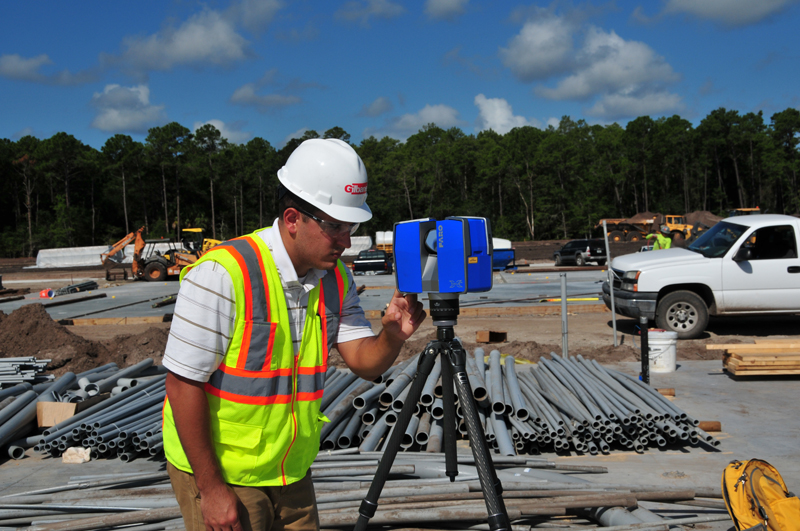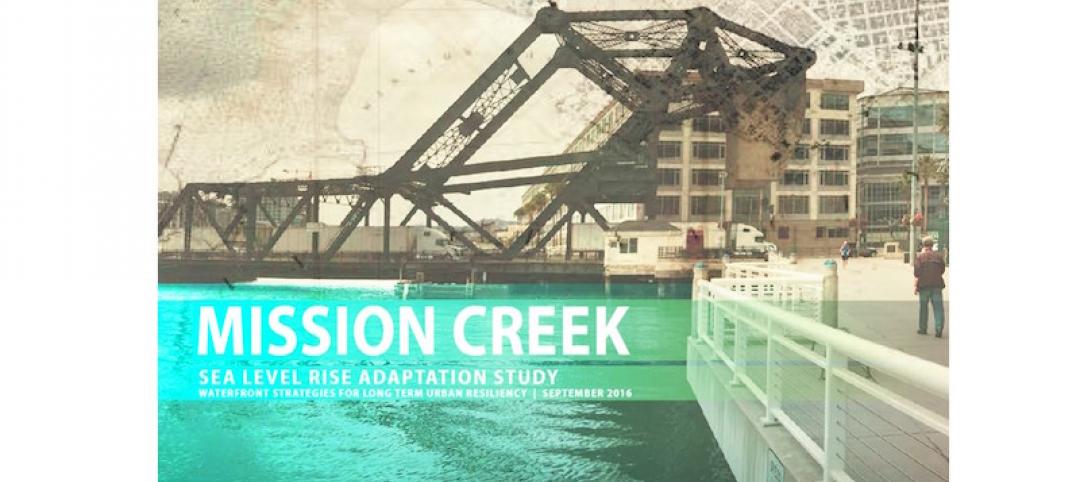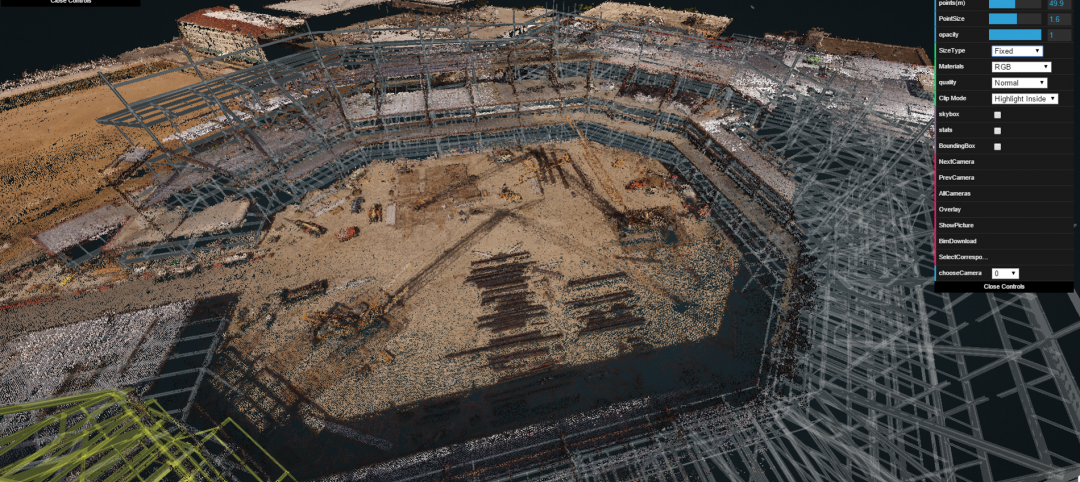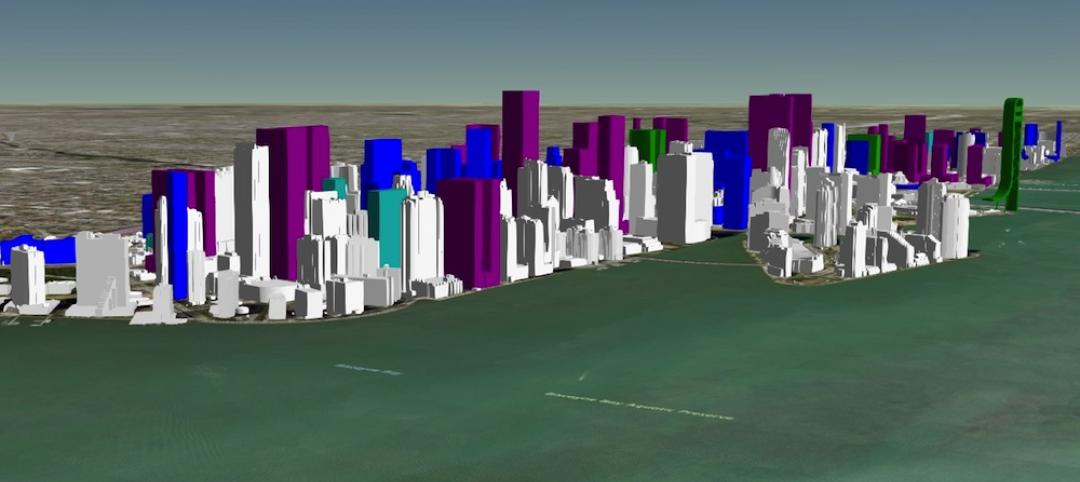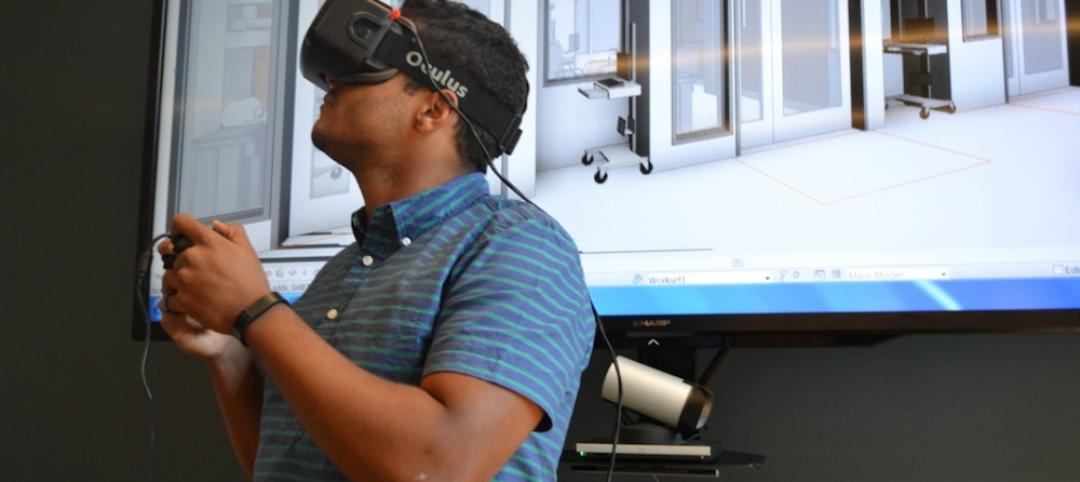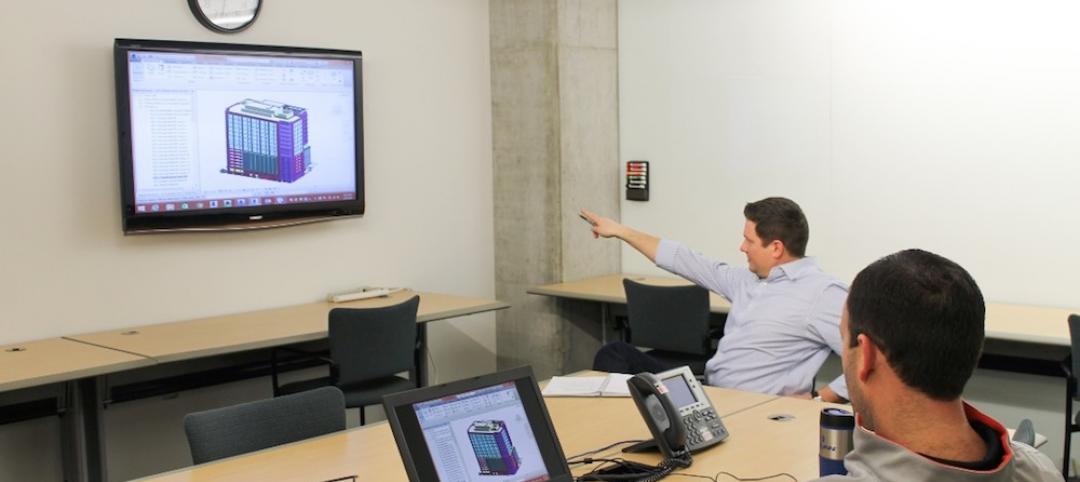Trust but verify. It’s a time-honored treaty enforcement principle. It also works well as a basic mantra for BIM (building information modeling)-based building construction. Just ask the Virtual Design & Construction (VDC) Team at Gilbane, a family-owned and operated construction company. Armed with a phase-shift laser scanner, a Gilbane VDC engineering team recently documented measurement discrepancies on a high-profile building construction project.
Gilbane specializes in the high-wire world of at-risk construction. On occasion, Gilbane is called in to rescue troubled projects. Recently the Gilbane VDC team was summoned to do just that. John Tocci, Jr., Director of the VDC Team sets the stage: “The work involves a new corporate campus, the headquarters of a Fortune 500 company. For various reasons, the previous construction manager was terminated. That happened on a Friday. My team took over the job on Saturday. By Sunday afternoon we were laser scanning part of the project in order to reconcile measurements for Monday morning meetings.”
Trade contractors desperately needed reliable benchmarks to accurately set walls, ducts, pipe, conduit locations, and other assemblies. Then there was the elevator shaft. Laser scanning verified two-inch variations on all sides, with the elevator opening three inches smaller than it should be. There was a new sheriff in town and the trades eventually rallied to the Gilbane VDC team.
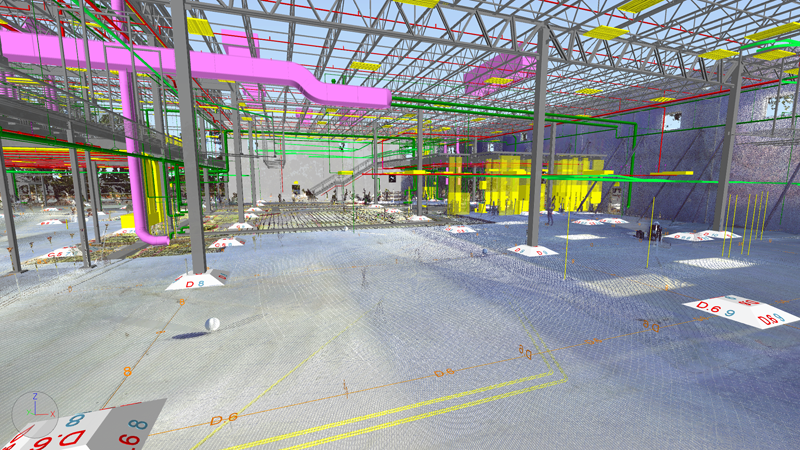
A point cloud of modeled as-built conditions.
“We’ve had a number of cases where the field team, trade contractors, or architects have argued with us about dimensions of existing conditions, Tocci stated. “We’ve been right every time. It underscores the fact that BIM and VDC, no matter how established we think it is, is still an emerging technology.”
As Gilbane discovered the anecdotal side of laser scanning pales in comparison to the dramatic ROI story. “Our first laser scanner paid for itself in the first week of operation,” Tocci reports. “We conservatively calculate we saved about $150,000 on the first project we scanned.” Just one week? Understandably, that kind of near-instant payback may strike some as too good to be true. Believe it, says Tocci. “If anyone wants to reverse engineer the calculations, they’ll quickly see the payback was actually quite larger,” Tocci reports.
“We assigned super-conservative values to all the ordinary construction tasks that scanning eliminates. We factor-in the electrical, mechanical, and plumbing packages on the job. “One week understates it. With scanning, there are no back charges. No finger pointing. No remediation. It’s all because it was measured right the first time,” Tocci says.
Like many risk-adverse businesses, Gilbane takes a careful, deliberate path to integrating new technology into their business. “The Focus3D Laser Scanner changed the industry,” Tocci declares. “When it came out it was three times less expensive than its competitors. Instead of capturing a single point at once, it can capture 978 million points per second. That’s a radically different scenario. It’s so easy for one person to move it around. It captures levels of detail that you didn’t think it could. “It’s an amazing tool. We now verify and find discrepancies that might bite us later on. All that risk goes away. We couldn’t be happier or more impressed,” Tocci says.
More Information:
FARO Technologies
250 Technology Park
Lake Mary, FL 32746
Phone: 407-333-9911 | Fax: 407-333-4181
aec.faro.com
Related Stories
AEC Tech | Apr 15, 2016
Should architects learn to code?
Even if learning to code does not personally interest you, the growing demand for having these capabilities in an architectural business cannot be overlooked, writes computational design expert Nathan Miller.
Building Tech | Apr 12, 2016
Should we be worried about a tech slowdown?
Is the U.S. in an innovative funk, or is this just the calm before the storm?
BIM and Information Technology | Apr 8, 2016
Turner streamlines construction progress tracking using predictive visual data analytics
The construction giant teams with a computer science and engineering professor to develop a clever drone- and rover-based construction monitoring tool.
BIM and Information Technology | Apr 5, 2016
Interactive 3D map shows present and future Miami skyline
The Downtown Miami Interactive 3-D Skyline Map lets users see the status of every downtown office, retail, residential, and hotel project.
AEC Tech | Mar 31, 2016
Deep Learning + AI: How machines are becoming master problem solvers
Besides revolutionary changes to the world’s workforce, artificial intelligence could have a profound impact on the built environment and the AEC industry.
Big Data | Mar 28, 2016
Predictive analytics: How design firms can benefit from using data to find patterns, trends, and relationships
Branden Collingsworth, HDR’s new Director of Predictive Analytics, clarifies what his team does and how architecture projects can benefit from predictive analytics.
BIM and Information Technology | Mar 21, 2016
Latest tech devices simplify the leap from BIM to virtual reality
Faster conversion times and higher-quality graphics are enabling VR to make the jump from novelty to necessity in the AEC world.
AEC Tech | Mar 15, 2016
Two to tango: Project Tango isn’t just for entertainment, it also has a wide range of possibilities relating to the professional world
Making things like augmented reality, precise measurements of indoor spaces, and indoor wayfinding possible, Google’s Project Tango has all the makings to become a useful and ubiquitous tool in the AEC market.
BIM and Information Technology | Mar 14, 2016
Visual estimating, generative design, and component construction push the limits of BIM/VDC
DPR Construction, JE Dunn, and The Living advance the AEC industry with three clever tech solutions.
Drones | Mar 9, 2016
A new image-capturing platform mediates drone and cloud technologies
3DRobotics, Autodesk, and Sony launch Site Scan to speed the process of making models from field data.


